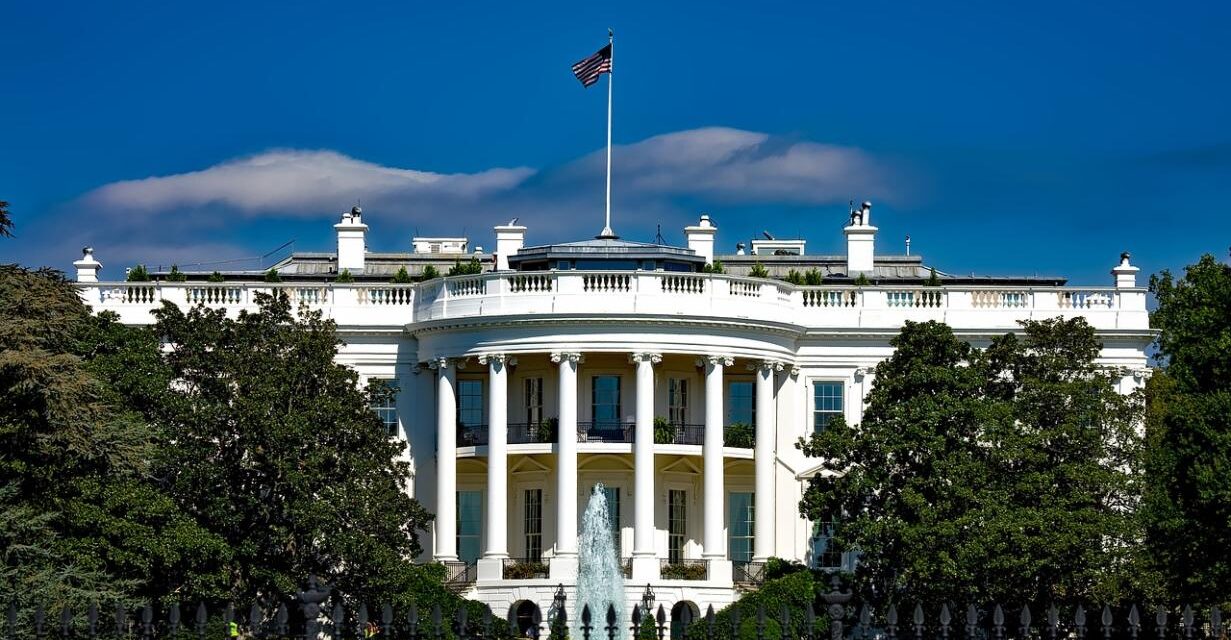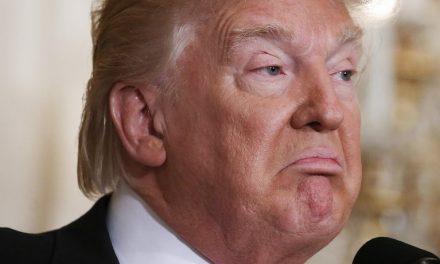There’s probably a chapter by Sun Tzu that addresses the dangers of dealing with an adversary that is so transparently stupid that their actions are impossible to predict. I may need to go hunt that down, because I’m getting dizzy trying to figure out the Republicans’ plans for tax reform. Before I get started here, I have to warn you that this will be complicated and you will be expected to have done some of the required reading from earlier in the semester. In particular, the two lectures on the uses of reconciliation will be referenced.
Those two pieces explain the Republicans’ original legislative roadmap, which I’ve called “The Dual-Reconciliation Plan.” In short, the GOP could not agree among themselves to a budget last year so they took advantage of that failure to set themselves up to pass two budgets this year. Back in March, the first time Obamacare repeal failed, I called it the “tricky tactic” that “destroyed Trump’s agenda.” Two weeks ago, I called it the explanation for why “Trump and the GOP Congress failed in just six months.” The plan called for using the first budget to pass their health care bill and the second budget to pass their tax reform. By splitting things this way, they hoped to accomplish several things at once.
By using last year’s hollowed out and unused budget bill, they could pass reconciliation instructions without having first worked out what would actually be in this year’s budget bill. This had the advantage of giving them speed. They could get started on Obamacare repeal almost immediately. By lowering or eliminating Obamacare’s taxes and thus the revenues in last year’s budget, they could thereby reduce the baseline against which this year’s budget would be measured. This would allow them to make larger tax cuts in the tax reform bill without it running afoul of Senate rules that prevent them from using reconciliation to increase the deficit. Finally, they could pass both reconciliation bills with 51 votes rather than the 60 they would need if they attempted to pass them in “regular order.”
As I’ve explained before, going the reconciliation route created a variety of constraints on what the Republicans could do. For example, it largely precluded them from addressing things that don’t have a pretty direct impact on taxes and revenues, leaving Obamacare’s regulatory structure mostly untouched. Since their plan for tax reform depended on a lower revenue baseline, they needed the first reconciliation bill to pass in order for the math to work on the second one. And, finally, they needed to treat the two bills as happening in two different fiscal years and as addressing two completely different budgets, and that meant that the health care bill, if not passed, would simply cease to exist the moment the Republicans passed a new budget. There was no flexibility in the order in which the two bills needed to pass. Health care had to come before tax reform.
If you want more clarity or detail on these admittedly confusing and hard to explain concepts, please follow the old links.
When the health care reconciliation bill failed in the Senate, Majority Leader Mitch McConnell placed it back on the calendar, which means that he can bring it back up at any time. The constraint on that is that he can’t bring it up again after the Republicans have passed a new budget with new reconciliation instructions. At times, it seems like no one understands this. And I can’t quite decide if the White House gets it or not.
Trump’s seemingly incoherent ravings that the Senate should not move onto other bills and issues until they have addressed health care don’t seem so insane if you realize that passing a new budget will destroy the old one. But there’s another possibility, which is that the administration actually understands this situation better than Congress does.
Let me try to explain.
If you read articles sourced to House Republicans that are only a week or two old, you’ll see that they envision tax reform as working through the reconciliation process that will only require them to get 51 votes when their bill goes to the Senate. That was the original plan, after all, and getting the votes of eight Democratic senators to overcome a filibuster would require compromises that the House GOP does not want to make.
Here’s a sampling of how the House Republicans have been explaining their position:
The House GOP budget includes reconciliation instructions for a deficit-neutral tax overhaul, as well as $203 billion in cuts to mandatory spending. If the House and Senate both pass and reconcile their budgets with a set of reconciliation instructions, they can use the resulting process to fast-track a tax overhaul without the threat of a filibuster in the Senate and rely solely on GOP votes.
“The budget is the gateway to tax reform,” House Budget Committee member Todd Rokita of Indiana said.
Rep. Jim Jordan, R-Ohio, is less optimistic. “You can’t get tax reform if you don’t have reconciliation instructions. You can’t get reconciliation instructions if you don’t pass a budget,” Jordan said at a recent forum at the conservative Heritage Foundation.
But the administration is throwing them a major curveball:
White House legislative director Marc Short said Monday the White House is not wed to using the often partisan reconciliation process to advance a tax overhaul, though senators were hesitant to rule out that procedural tool.
“We’ve learned how difficult it is to thread the needle with 52 [Republican] senators,” Short said at an event hosted by the conservative Americans for Prosperity at the Newseum in Washington, D.C…
…Short’s description of the tax bill moving through committees in early September suggests it would not include reconciliation instructions. The reconciliation process would allow the Senate to pass a tax bill with only a simple majority, instead of the 60-vote threshold that would require the support of eight Democrats under regular order.
“We’re not necessarily locked into that direction,” Short said of using the reconciliation process to avoid the Senate filibuster.
Treasury Secretary Steve Mnunchin is parroting the same line. It appears that the White House does not believe that they can successfully pass tax reform without Democratic votes and they’re saying that they don’t want Congress to even try. If they don’t use the budget reconciliation process for tax reform, then they don’t actually have to pass a budget for this year at all. Remember, they never passed one last year. And as long as they don’t pass a new budget, the old one containing the health care repeal will still exist and can remain on the calendar. Perhaps later this year, Sen. Bob Menendez will be convicted and forced to resign his seat, and New Jersey Gov. Chris Christie can appoint a replacement who will give the Republicans the extra vote they need to pass their “skinny” repeal.
On the other hand, if their tax reform is going to require eight Democratic votes in the Senate, it’s not going to look anything like what the congressional Republicans were hoping to see.
Republicans’ partisan push to overhaul the health care system failed in the Senate, but House GOP lawmakers say they plan to stick to that approach in rewriting the tax code…
…Rep. James B. Renacci, a member of the Ways and Means and Budget committees, said it would be nice for Republicans and Democrats to come together to rewrite the tax code but that reconciliation remains the more pragmatic approach because it allows for a 51-vote threshold in the Senate.
“Otherwise, you’re going to be held hostage to 7 or 8 votes out of 535, which isn’t fair either,” the Ohio Republican said. Eight is the minimum number of Democrats that would be needed to pass a tax bill in the Senate if it didn’t move through reconciliation.
Another factor impacting the White House’s decision-making is that the House Republicans are way behind on passing a budget and seem to be at an impasse. The Senate hasn’t really even begun their work. If they want to get the tax reform ball moving, using regular order may be their best option.
This would be a wise decision on the administration’s part because it’s not likely they’d succeed in doing a tax reform with no Democratic input or support. And doing things this way would preserve their option to return to the “skinny” bill later if the votes materialize.
But I can’t be certain that Trump understands any of this. Does he realize that his tax reform is going to need the support of people like Sens. Jon Tester and Claire McCaskill? Does he understand that he can’t get those votes unless he gives them co-authoriship of the bill? Is he ready to explain this to his caucus, his base, and the Koch Brothers?
A tax reform bill does not have to be bad legislation. But all the Republicans’ hopes are pinned on creating a very bad bill, and certainly a much worse one than will be endorsed by eight Democratic senators.
I don’t know how to game this out. Will Mnuchin and Short be undercut by the president when he realizes what they’re advocating is a kind of unilateral surrender? Or is he more cunning than he looks and the one that gave them their marching orders?
I’m going to go to the library and check out The Art of War. Maybe I’ll find my answers in there.





